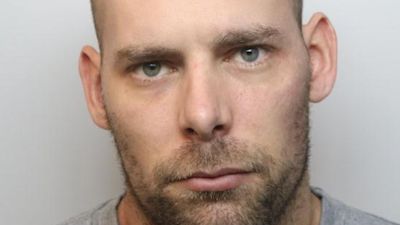Killamarsh murders: Probation officer says errors in Damien Bendall case 'justified'

A senior probation officer has said there were "very justified reasons" for errors in the case of a violent criminal who went on to murder a mother and three children.
Tracey Hume told an inquest Damien Bendall's case was one of 350 she had to oversee when she allocated it to a probation officer who had just six months' experience.
Bendall, 33, was given a whole life order last year for murdering 35-year-old Terri Harris and her children, 13-year-old John Paul Bennett and 11-year-old Lacey Bennett, as well as Lacey’s friend, 11-year-old Connie Gent, in Killamarsh, near Sheffield, in September 2021.
Appearing at Chesterfield Coroner’s Court, Ms Hume denied suggestions that allocating Bendall’s supervision to her junior colleague, Aisha Fatima, was a poor decision based on what she knew at the time.
She said the decision not to reallocate it when clear evidence emerged that Bendall posed a high risk was an "error of judgment".
When asked by Kirsten Heaven, representing Ms Harris's parents, Angela Smith and Lawrence Harris, whether her "lack of professional curiosity" constituted an "egregious failure", Ms Hume said: “I think with the circumstances I can’t say it was egregious.
"I can say it was an error of judgment under the circumstances I was working under. I was trying to juggle everything."
She later said: “While I’m not trying to be defensive and say it was not egregious, what I’m trying to say is I cannot manage or micromanage 350 cases.
"So while yes, I appreciate there were errors, I’m just saying there were very, very justified reasons as to why I did not see all of these at the time."
Weeks before the killings in June 2021, Bendall had been given a suspended sentence for an unrelated arson offence, after being incorrectly categorised as posing a low risk to partners and children and a medium risk to the public, by a different probation officer.
As part of that sentence, Bendall was given a five-month curfew requirement at Ms Harris’s address in Chandos Crescent, Killamarsh, and his case was allocated to Ms Fatima by Ms Hume.
The inquests had previously heard that Ms Fatima had very little experience in the criminal justice system and could only handle low-risk offenders, but when asked if this decision was a mistake based on what she knew at the time, Ms Hume replied: “I don’t believe that at all.”
However, the court heard that Ms Hume and her colleagues became aware of Bendall’s violent past, which included convictions for several serious offences dating back to 2004, as early as July 6 2021.
There was also information available suggesting that Bendall had reported himself as showing sociopathic and psychopathic tendencies and that he was using both alcohol and drugs while living with Ms Harris, Lacey and John Paul, but Ms Hume admitted she never actively sought this information.
No effort was made to speak to Ms Harris by either the authors of the pre-sentence report or those who supervised Bendall after sentencing. Ms Hume admitted it was also an error not to prompt Ms Fatima to attempt to contact Ms Harris.
She also acknowledged there were “missed opportunities” to discover that Bendall had previously been accused of domestic violence.
A subsequent report into Bendall’s case by the Inspectorate of Probation highlighted a litany of failures and singled out Ms Hume’s allocation decision as “another example of poor allocation practice to add to the other serious issues” that were identified.
But Ms Hume had told the Inspectorate that staff were put under “impossible pressure” and told the inquests that high workloads prevented her from fulfilling the oversight requirements of her role.
She said: “In the circumstances that we were under, in the type of absolute pressure on everybody, I did every single thing that I could for this case and every single one of my cases.
“At that time I had 350 cases that I was overseeing through the people I managed. I did everything I could.
“It was not possible to do absolutely everything on the list of things we needed to do.”
The inquest continues.
Want a quick and expert briefing on the biggest news stories? Listen to our latest podcasts to find out What You Need To Know.